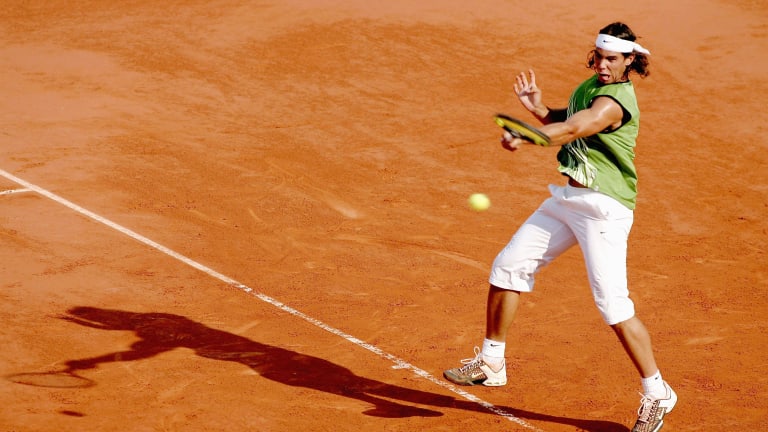Having just played his final match, Rafael Nadal would surely appreciate these words from a speech made by President Theodore Roosevelt:
The credit belongs to the man who is actually in the arena, whose face is marred by dust and sweat and blood; who strives valiantly; who errs, who comes short again and again, because there is no effort without error and shortcoming; but who does actually strive to do the deeds; who knows great enthusiasms, the great devotions; who spends himself in a worthy cause; who at the best knows in the end the triumph of high achievement, and who at the worst, if he fails, at least fails while daring greatly, so that his place shall never be with those cold and timid souls who neither know victory nor defeat.
This was quintessential Nadal. No tennis player has better personified Roosevelt’s concept of “The Man in the Arena.”
As well as Nadal covered the court, as superb as he was at coming up with great shots under pressure, his genius was propelled most of all by a sheer love for the battle and the competitive intensity he brought, point after point. That was the superpower that carried Nadal to 92 ATP singles titles—including 22 Grand Slams, second-most in men's tennis history—209 weeks ranked No. 1 in the world, a record 912 consecutive weeks inside the Top 10, five Davis Cup team victories, two Olympic gold medals.





